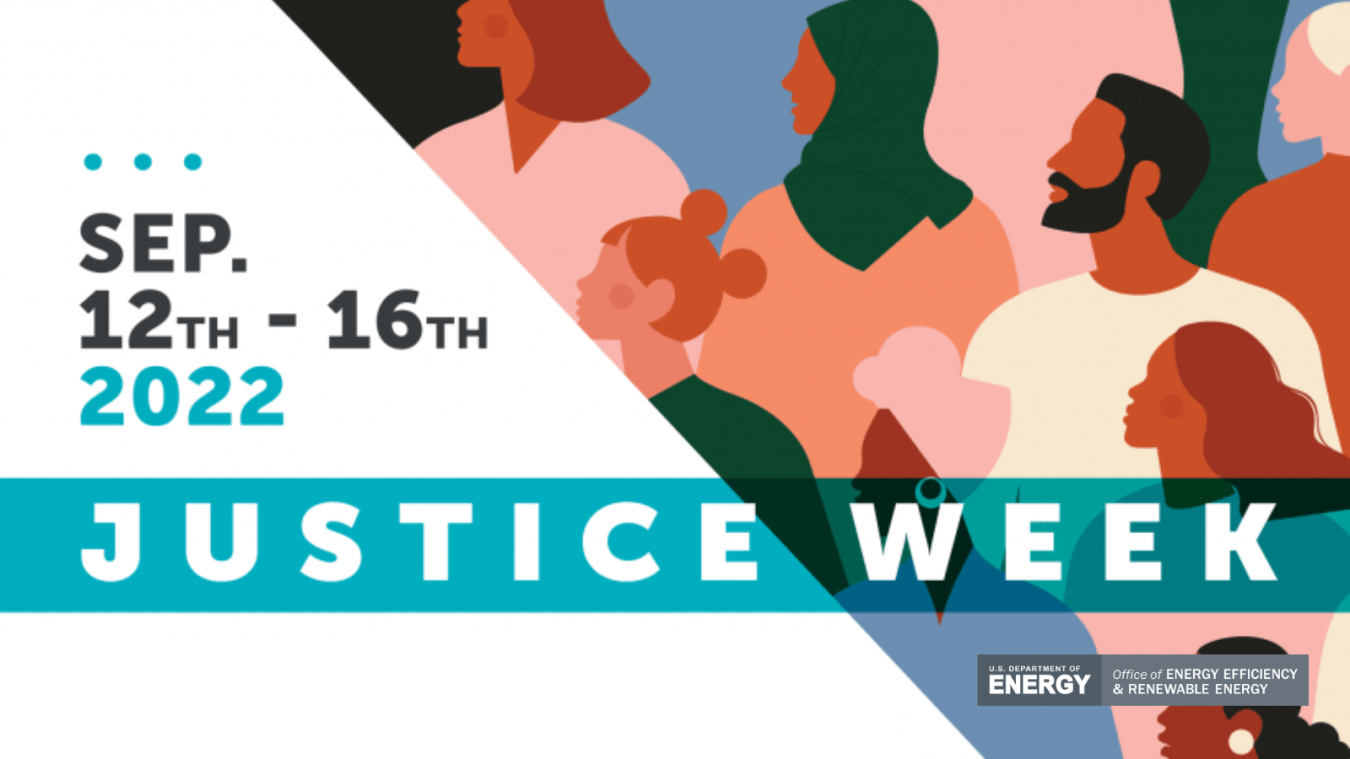
We learn about justice at a young age. When a child doesn’t share a toy, another will cry, “It’s not fair!” Sharing and fairness—energy equity and environmental justice—are fundamental to our survival, because the effects of climate change are hurting some groups of people more than others. The U.S. Department of Energy (DOE) is taking steps to establish energy equity and environmental justice throughout the country, and Justice Week (September 12-16, 2022) is a chance to highlight these efforts to ensure no one is left behind in the transition to clean energy.
Historically, the benefits of DOE investments have been unevenly distributed among the American people. DOE is working to understand the barriers built into its funding opportunities and other forms of assistance to more evenly distribute clean energy technology benefits to all Americans.
Each day of Justice Week, we will spotlight a different energy justice issue. Follow us and join DOE to discuss how best to deliver energy justice across the United States:
- Wednesday, September 14, 9 a.m. ET for a town hall about DOE’s new Equity Action Plan
- Friday, September 16, 10 a.m. ET to learn how to take advantage of the Justice40 Initiative
Institutionalizing Equity
The effects of systemic injustices in America over the course of history are clearly visible today, especially regarding climate change: Low-income, Black, Brown, and Indigenous communities suffer the most from fossil fuel impacts. This inequity jeopardizes health and safety, and the Biden-Harris Administration has declared it unacceptable. On his first day in office, President Biden issued an Executive Order on Advancing Racial Equity and Support for Underserved Communities Through the Federal Government. This order and the Justice40 Initiative, which directs 40% of federal investments in clean energy and energy efficiency to flow to disadvantaged communities, guide DOE’s energy equity and environmental justice efforts.
DOE’s Office of Energy Efficiency and Renewable Energy (EERE) is on the front lines to deliver on Justice40 priorities. It is revamping programs and activities from the inside out to institutionalize equity principles at every level of business—including research, development, demonstration, and deployment. This will ensure our work is inclusive and the benefits of clean energy reach everyone.
Institutionalizing equity begins with instilling diversity, equity, inclusion (DEI) principles at DOE and in the nation’s research community. This includes broadening access to funding opportunities to increase diversity and perspectives among EERE awardees. Since May 2021, EERE has added DEI requirements for $667 million in funding opportunities.
Understanding Community Needs
People have the right to be heard when it comes to energy and resilience planning in their neighborhood. To equitably deliver the benefits of clean energy to all Americans, EERE is working to improve communication and outreach in disadvantaged communities. There is no one-size-fits-all solution to mitigating climate change; the residents of Pittsburgh, Pennsylvania, have different needs and concerns than the residents of Hattiesburg, Mississippi, do. Through working groups and roundtables, EERE is involving community-based organizations, tribal nations, state and local governments, and minority-serving institutions in the development of energy projects.
Two EERE programs that are helping expand energy and environmental justice include the National Community Solar Partnership, which aims to expand access to affordable community solar to every U.S. household, and the Inclusive Innovation Prize, which awards groups that support entrepreneurship and innovation in communities historically underserved in climate and energy technology funding. There is more to come. Get involved and stay tuned so we can work together for a just clean energy future.
